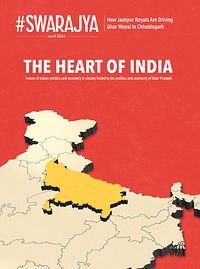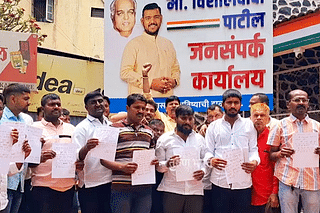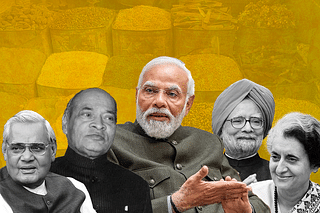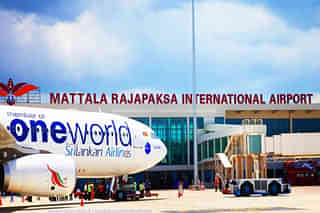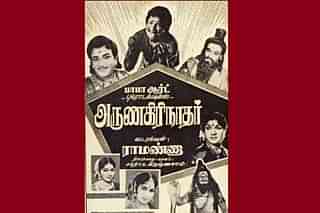Politics
Kalli Purie Showed The Mirror To The Media, And The Picture Wasn't Pretty
R Jagannathan
Mar 26, 2024, 12:42 PM | Updated Mar 27, 2024, 12:29 PM IST
Save & read from anywhere!
Bookmark stories for easy access on any device or the Swarajya app.
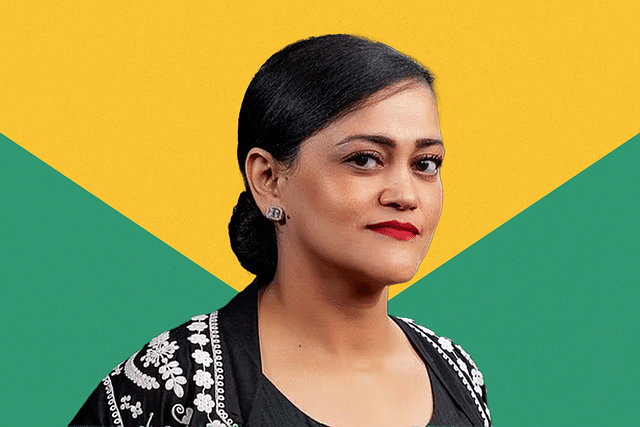
At the recent India Today Conclave, Kalli Purie, vice-chairperson of the India Today Group, got a lot of backlash — mostly from her media fraternity — for saying that “media cannot play the role of the opposition” in a democracy.
Among other things, she said: “There are unfair charges of Godi or Modi media… If the Opposition is in disarray, the media cannot be blamed for it. We cannot present the other side equally strongly if it doesn't exist… We are observers in this boxing match, we are not players. If one side is weak or doesn't show up, we CANNOT jump into the ring."
The anti-Modi media immediately pounced on her. Newslaundry said in a post on social media platform X (formerly Twitter): “#KalliPurie all but admitted that the #IndiaToday Group is part of the noble tribe that have (sic) hopelessly devoted themselves to the cause of PM Modi and BJP; she just didn’t see it as troublesome.”
The Caravan, another anti-Modi platform, dipped back into an archive on Kalli Purie, and posted: “#KalliPurie has led the #IndiaToday Conclaves since 2011, and her career has been more focussed on the presentation rather than substance of news stories. One former staffer said, ‘She knows how to sell the news as entertainment'.”
Hartosh Singh Bal, who has had nothing but vitriol for Narendra Modi and the BJP, posted: “At the 21st edition of the India Today Conclave, Kalli Purie emphasized the distinction between medium and message, affirming that media serves as a conduit for information, rather than an active participant in shaping political narratives!”
There were many more such critiques, and some of them were surely coming from a position of genuine outrage. Most obviously believed that Purie had sold out to the government, possibly for commercial reasons.
Without discounting the fact that publications depend a lot on revenues from governments — and not just the Modi government, for the states too spend on advertising — one should objectively analyse the content of her submissions rather than just question her motives for saying what she did.
Let’s ask ourselves the following questions, which is what Purie asked in her own way:
One, is the primary purpose of journalism to get as close to the truth as possible or just oppose the government? What if the government is actually doing a good job some of the time?
Two, is it really the media’s job to prop up an opposition that seems to have lost its way? When most opposition parties seem to be clueless on how to take on the Modi government, which surely has many chinks in its armour, why is it the media’s job to provide them with ammo, assuming the media actually is in a position to obtain that ammo?
Three, when the media depends substantially on advertising and corporate funding for survival, how can it really do the costly job of digging for the truth and giving voters a clearer view of reality? If companies and advertisers have no interest in rocking anyone’s political boat, why would they fund the media to do the same job?
Clearly, the point is that the media cannot do a better job of informing the public without fear or favour if they lack strings-free funding support.
The answer to the dilemma of funding the media is the same as the one involving the funding of political parties. Both activities are vital for democracy, but neither can easily obtain funding without strings or the application of pressure to get the money out of donors.
Ask yourself: which corporate will willingly offer crores of rupees for either politicians or media unless forced or prodded to do so. Just as it is assumed that political parties in power use unfair means (tax raids, doling out of favours) to obtain corporate funding, media is mostly in the same boat.
There are any number of stories floating in the media, especially cash-strapped regional media, where advertising money flows depend on using negative stories as blackmail material to extract funds.
In fact, Left wing publications are in the best position to extract money from businesses, for they are the ones who have no love lost for them, and businesses are more than willing to give them money to keep them quiet.
Kalli Purie’s mistake probably was to be so open about the media, where she effectively asked “Why should I be doing the job of the opposition, when there is nothing in it for me”.
The answer, whether we want better political parties or better media, lies in solving the funding problem for both. In the past, electoral bonds did some of the job for parties, but now that is gone.
Philanthropy and commercial advertising worked for the mainstream media till about a decade ago, but with Google and social media platforms grabbing the bulk of the advertising rupee, that option is narrowing. Now, even philanthropy comes with an agenda.
While political parties can still be funded by the state fairly neutrally, the same cannot be done for media, for there are simply too many players here, especially when we add digital publications. We clearly need donors with no narrow agendas of their own.
Save & read from anywhere!
Bookmark stories for easy access on any device or the Swarajya app.
Jagannathan is Editorial Director, Swarajya. He tweets at @TheJaggi.
Introducing ElectionsHQ + 50 Ground Reports Project
The 2024 elections might seem easy to guess, but there are some important questions that shouldn't be missed.
Do freebies still sway voters? Do people prioritise infrastructure when voting? How will Punjab vote?
The answers to these questions provide great insights into where we, as a country, are headed in the years to come.
Swarajya is starting a project with an aim to do 50 solid ground stories and a smart commentary service on WhatsApp, a one-of-a-kind. We'd love your support during this election season.
Click below to contribute.
